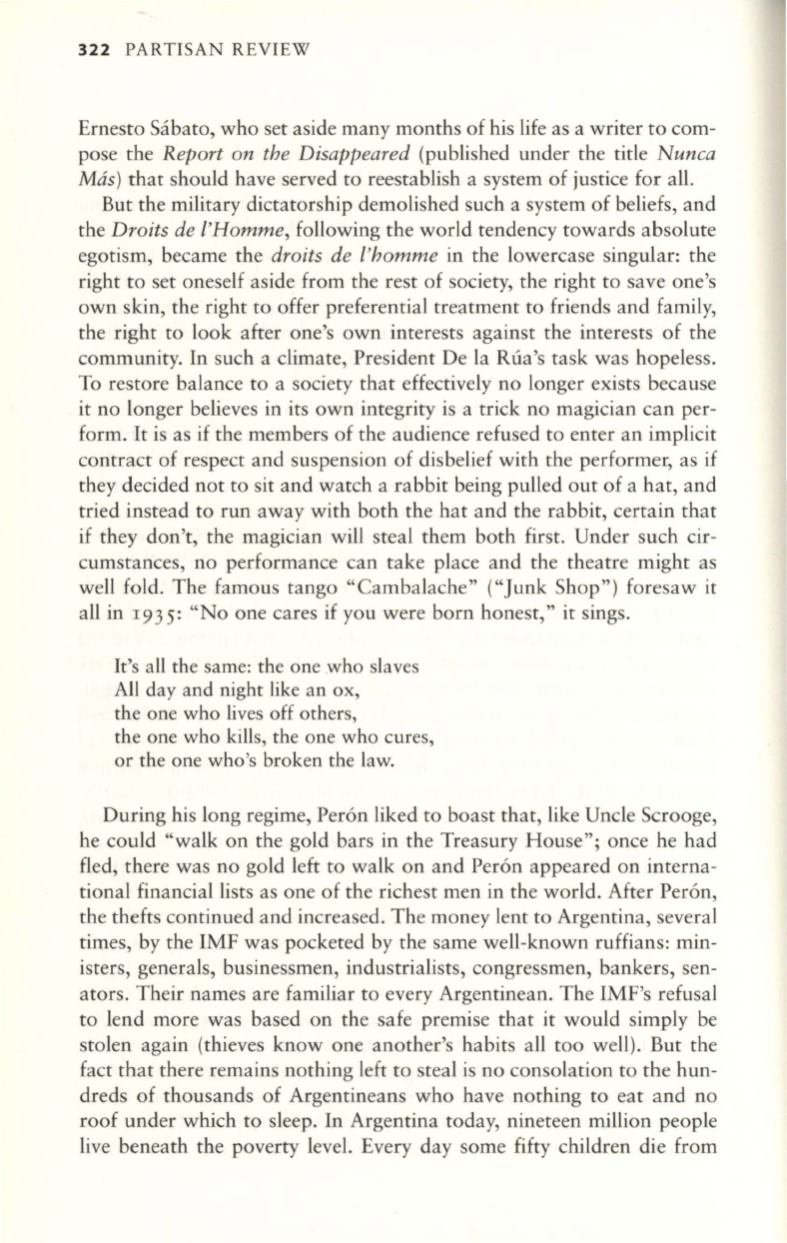
322
PARTISAN REVIEW
Ernesto Sabato, who set aside many months of his life as a writer to com–
pose the
Report on the Disappeared
(published under the title
Nunca
Mas)
that should have served to reestablish a system of justice for all.
But the military dictatorship demolished such a system of beliefs, and
the
Droits de ['Homme,
following the world tendency towards absolute
egotism, became the
droits de ['homme
in the lowercase singular: the
right to set oneself aside from the rest of society, the right to save one's
own skin, the right to offer preferential treatment to friends and family,
the right to look after one's own interests against the interests of the
community. In such a climate, President De la Rua's task was hopeless.
To restore balance to a society that effectively no longer exists because
it no longer believes in its own integrity is a trick no magician can per–
form.
It
is as if the members of the audience refused to enter an implicit
contract of respect and suspension of disbelief with the performer, as if
they decided not to sit and watch a rabbit being pulled out of a hat, and
tried instead to run away with both the hat and the rabbit, certain that
if they don't, the magician will steal them both first. Under such cir–
cumstances, no performance can take place and the theatre might as
well fold . The famous tango "Cambalache" ("Junk Shop") foresaw it
all in
1935:
"No one cares if you were born honest," it sings.
It's all the same: the one who slaves
All day and night like an ox,
the one who lives off others,
the one who kills, the one who cures,
or the one who's broken the law.
During his long regime, Peron liked to boast that, like Uncle Scrooge,
he could "walk on the gold bars in the Treasury House"; once he had
fled, there was no gold left to walk on and Peron appeared on interna–
tional financial lists as one of the richest men in the world. After Peron,
the thefts continued and increased. The money lent to Argentina, several
times, by the IMF was pocketed by the same well -known ruffians: min–
isters, generals, businessmen, industrialists, congressmen, bankers, sen–
ators. Their names are familiar to every Argentinean. The IMPs refusal
to lend more was based on the safe premise that it would simply be
stolen again (thieves know one another's habits all too well). But the
fact that there remains nothing left to steal is no consolation to the hun–
dreds of thousands of Argentineans who have nothing to eat and no
roof under which to sleep. In Argentina today, nineteen million people
live beneath the poverty level. Every day some fifty children die from


